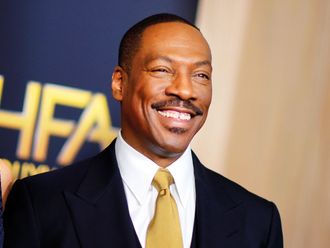The Conservative Heart: How to Build a Fairer, Happier, and More Prosperous America
By Arthur C. Brooks, Broadside Books, 256 pages, $28
“For me to be successful, I’m going to have to show my heart.” That was Jeb Bush’s self-assessment as he prepared to announce his candidacy for president. This judgment could well have come from speaking with Arthur C. Brooks, or perhaps reading an advance copy of “The Conservative Heart: How to Build a Fairer, Happier, and More Prosperous America”.
Brooks is president of the American Enterprise Institute, a Washington think-tank that, according to its website, is “committed to expanding liberty, increasing individual opportunity and strengthening free enterprise”. Though officially nonpartisan, AEI’s mission statement and community of scholars put it squarely on the right. AEI is a superb generator of conservative policy research, and it is the farm team and retirement outpost for political appointees to Republican administrations. (Full disclosure: I was a visiting scholar at AEI some years ago, just after I had spent two years working as an economic adviser to President George W. Bush and well before Brooks arrived there.)
In this new book, Brooks calls attention to an image problem facing today’s conservatives and offers his solution. The intended audience seems to be the couple of dozen politicians running, or considering a run, for the Republican nomination for president. Or more realistically, because those guys (and one gal) are too busy eating corn dogs in Iowa to do much reading these days, the real audience may be their speech-writers.
The image problem is that conservatives too often resemble Ebenezer Scrooge. By opposing increases in the minimum wage, advocating cuts in corporate taxes, railing against excessive regulation of business and worrying about the cost of entitlement programmes, they appear to care only about the rich and well-connected. They seem indifferent to the needs of those whom Hillary Clinton likes to call “everyday Americans”.
The solution, according to Brooks, is to speak less from the head and more from the heart. Instead of emphasising specific policy proposals, stress broader goals and aspirations. Explain that you aim to help the underdogs. Identify with the Bob Cratchits of the world.
Those on the left may be tempted to see this strategy as a cynical attempt to hide the true motives of the right. But Brooks argues that conservatives are, by nature, as generous and caring about their fellow man as liberals, if not more so.
For evidence, he points to findings from his 2006 book “Who Really Cares”: households headed by conservatives give, on average, 30 per cent more dollars to charity than households headed by liberals, even though their incomes on average are 6 per cent lower. They are also more likely to be blood donors. George W. Bush’s appeal to “compassionate conservatism” was redundant at best.
So why do so many people view liberals as more compassionate than conservatives? The problem, in Brooks’s view, is that conservative policy arguments, while cogent if fully explained and digested, are too extended to be useful in a political dynamic dominated by first impressions based on 30-second sound bites.
For example, take the proposal to increase the minimum wage. Conservatives have many reasons to believe that it is the wrong way to help the working poor. First, when the cost of hiring unskilled workers rises, businesses hire fewer of them. Brooks believes that the key to personal happiness is “earned success”. A higher minimum wage means that fewer people have the opportunity to experience it.
Second, because some of the costs of a higher minimum wage are passed on to consumers in the form of higher prices, it hurts those who buy these goods and services, such as meals at fast-food restaurants. The economist Thomas MaCurdy of Stanford University reports that this price effect “is more regressive than a typical state sales tax”.
Third, the minimum wage is not well targeted to those living in poverty. Of workers affected by an increase in the minimum wage, more than half belong to families making more than $35,000 (Dh128,560) a year, and almost a quarter belong to families making more than $75,000 a year. If we were evaluating a government spending programme to combat poverty, no one would be satisfied if so many of the programme’s beneficiaries were already living well above the poverty line (about $24,000 for a family of four).
Fourth, there is a better way to help the working poor: the earned-income tax credit. This income supplement is well targeted to families living in poverty, it does not raise the prices of goods and services produced by low-wage workers and it does not discourage firms from hiring these workers. By incentivising work, it increases the number of people enjoying earned success.
Brooks finds arguments such as these persuasive (as do I). But they do not fit neatly on a bumper sticker. This stuff appeals only to policy wonks, who represent a tiny fraction of the electorate.
“It’s time to give America a raise.” That is how President Barack Obama explained why he wants to increase the minimum wage. Such a great sound bite plays well on the evening news.
Of course, it does not rebut any of the conservative arguments against a higher minimum wage, but it carries a clear implication: the president’s political opponents don’t think America deserves a raise. They are the mean, greedy bosses. Back to work, Mr Cratchit.
A similar pattern arises for other issues as well. The right advocates lower taxes and less regulation to promote economic growth and rising living standards for all Americans. It wants to reform entitlement programmes to make them sustainable, thereby preventing sudden and draconian cuts in the future. But the left easily demonises these proposals as attempts to further enrich the already successful while gutting the social safety net for those most in need.
Brooks doesn’t want conservatives to abandon the wonkish policy arguments. Indeed, the institute he runs is dedicated to developing them. But he fears that if conservatives lead with them, few people will listen.
His closing chapter, called “The Seven Habits of Highly Effective Conservatives”, offers a recipe for how conservative politicians can revise their rhetoric to undermine the left’s monopoly on compassion and empathy. He wants conservatives to speak more in moral terms, to be seen fighting for people rather than against policies, to spend more time engaging with moderates and liberals, and to embrace the persona of a happy warrior.
Most of all, “say it in 30 seconds”. Extended, rational argument can come later. A good first impression is crucial, and first impressions are inherently emotional, instinctive and quickly made. Choosing a favourite candidate is like falling in love. If voters are turned off in the first few seconds, it is nearly impossible to win them back.
This advice makes sense and, like the rest of the book, is presented in a highly readable fashion. Whether the strategy is sufficient to return a conservative to the White House, as Brooks hopes, is hard to say. If the eventual Republican nominee heeds his counsel, the test will come in November 2016.
–New York Times News Service
N. Gregory Mankiw is the Robert M. Beren professor of economics at Harvard University.









